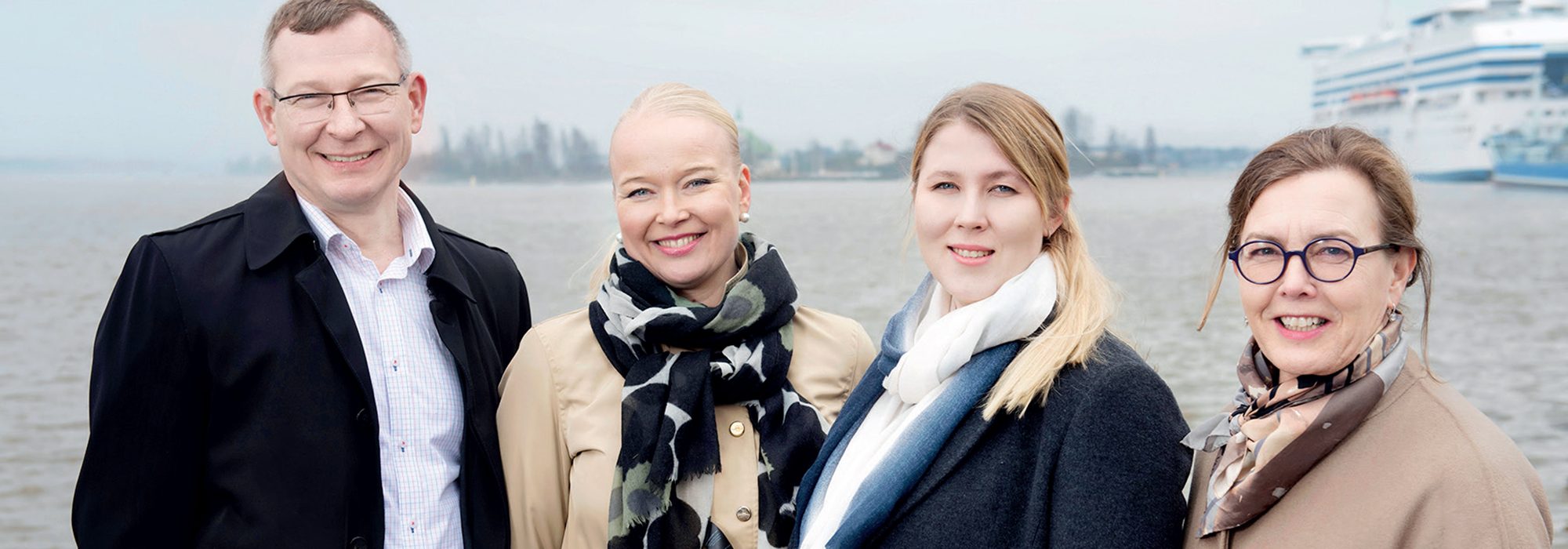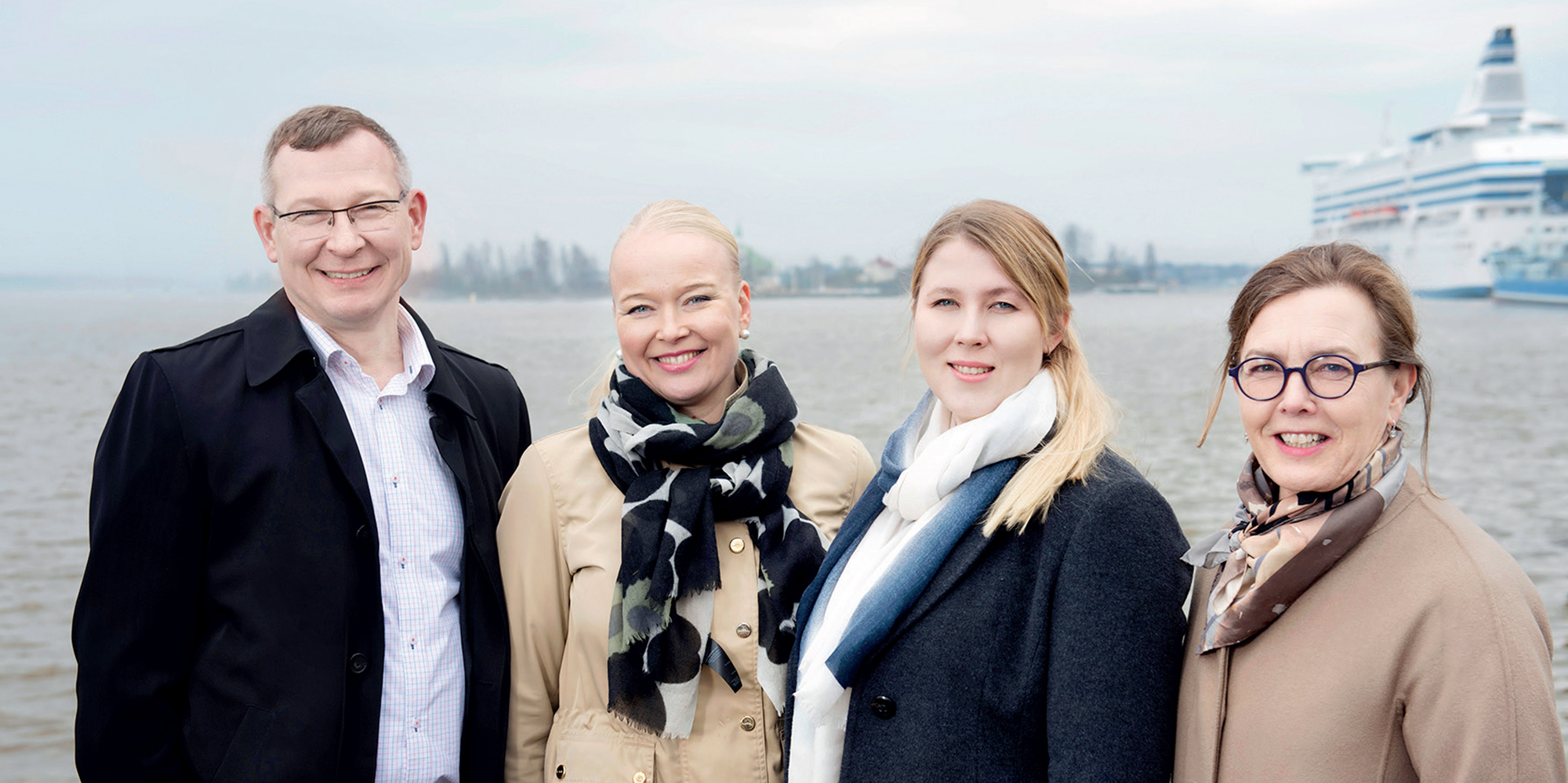Among our number are passenger and cargo ship owners, specialist ship owners, marine industries ranging from leading marine equipment manufacturers, turn-key suppliers, designers, software and system providers, not forgetting the shipyards, as well as the ports that handle almost 90 per cent of Finland’s foreign trade. Passenger traffic is also an important category. The Port of Helsinki is the busiest passenger port in Europe.
The past year of 2020 has been difficult for many actors in the maritime cluster, as effects of the covid-19 pandemic have impacted the maritime sector heavily. The yearly Breaking Waves conference, that usually gathers key industry players from all over Europe to Helsinki, was organized virtually in 2020 due to the circumstances. Speakers and audience at Breaking Waves highlighted the increased need for collaboration and further cooperation between stakeholders, in order to navigate through the crisis. They also stated, that decarbonization
efforts and developing digital operations are more important than ever.
Finland’s unique strength has always been the exceptionally openminded collaboration between entities. This strength is now even more crucial than ever for future success post covid-19. It helps us to move forward, and it also enables experimentation and creating new innovations.
For example, maritime cluster companies in Finland have teamed up with AI developers to develop machine learning solutions that improve the situational awareness at ports and vessels by analyzing freight and logistics chains. There is strong high-technology development in Finland. The Finnish maritime cluster is a pioneer in environmental innovation, and it is at the global spearhead of the development and deployment of low emission technologies that enhance energy efficiency.
Liquefied natural gas (LNG), wind, electricity and biofuels manufactured from waste are already in use – they have long since graduated from the planning phase. At the heart of Finland’s expertise are the most energy-efficient cruise vessels and the greenest and quietest ferries in the world. Finland also has very strong Arctic expertise. Finnish shipbuilding, as well as seafaring ex-
pertise is unique, and the icy winter and difficult navigation conditions require seafarers and entities in the maritime industry to have special skills.
Finnish vessels act as references and testing platforms for innovations in the marine industry and, once testing is complete, they can be launched on world markets. The competitive shipowning sector underpins the growth of the maritime cluster as a whole. The industries are intrinsically linked – ports and port operators do well when ship owners and the marine industry are buoyant.
In turn, these industries require good ports and fairways, functional logistics chains and good mutual collaboration.
Maritime operations are going through a major transformation, due to digitalization and automation. Climate change is also challenging the maritime cluster to identify solutions for low-emission maritime traffic. The global pandemic will add its own challenge in addition to these megatrends. This publication highlights the world-class Finnish expertise and innovations that will address
the challenges and eventually lead the way to recovery.
Tiina Tuurnala, Annaleena Mäkilä, Elina Andersson, Juha Mutru





